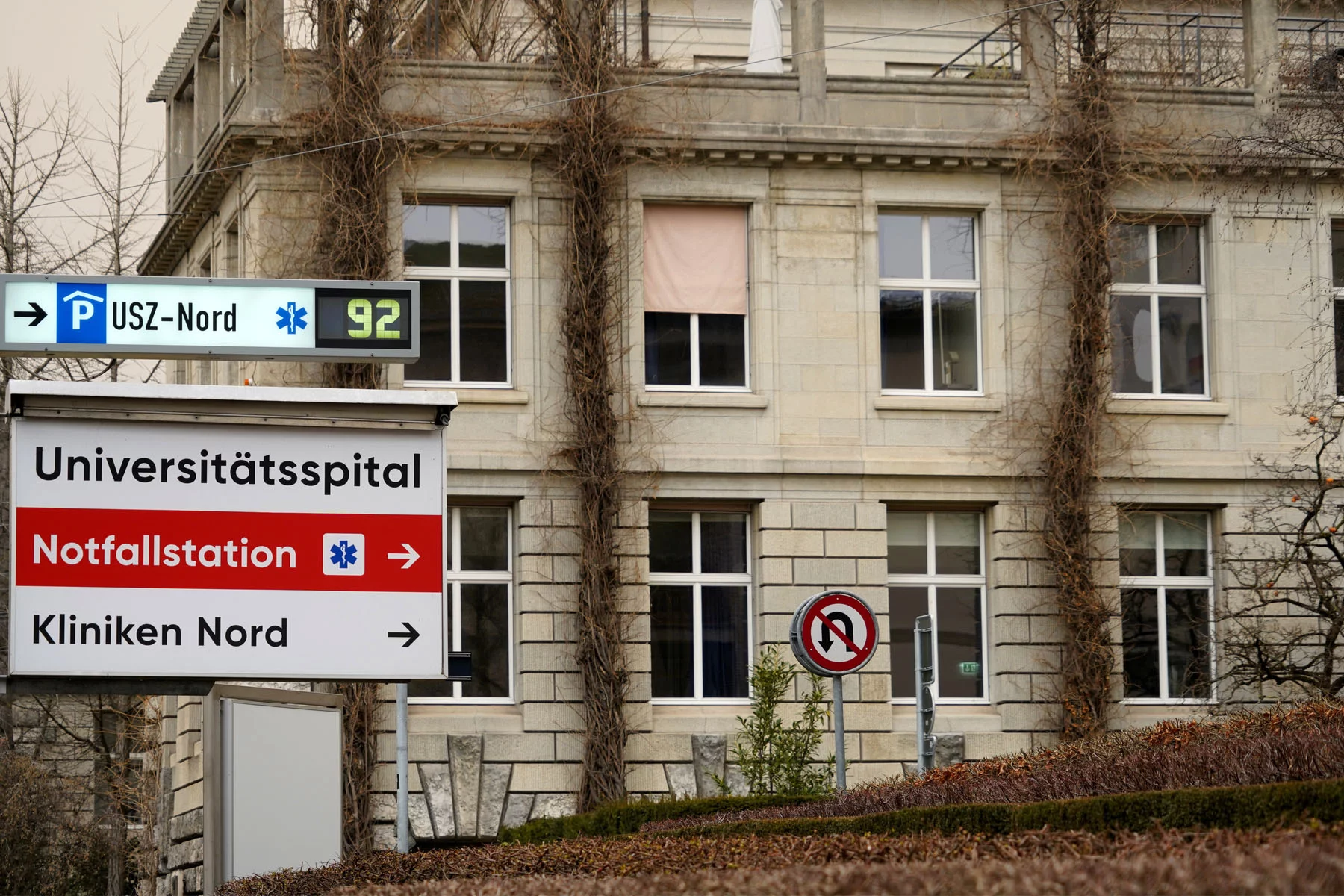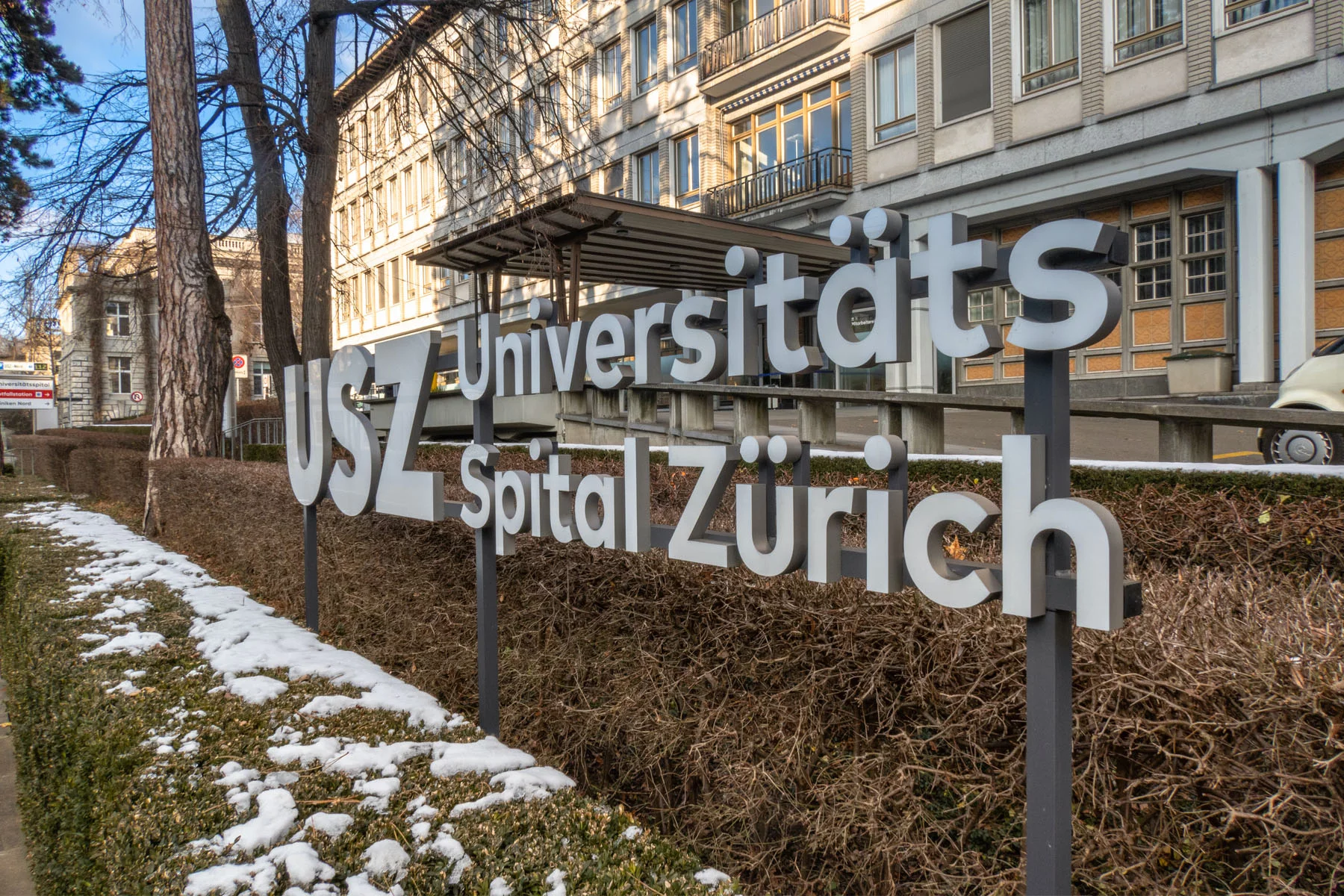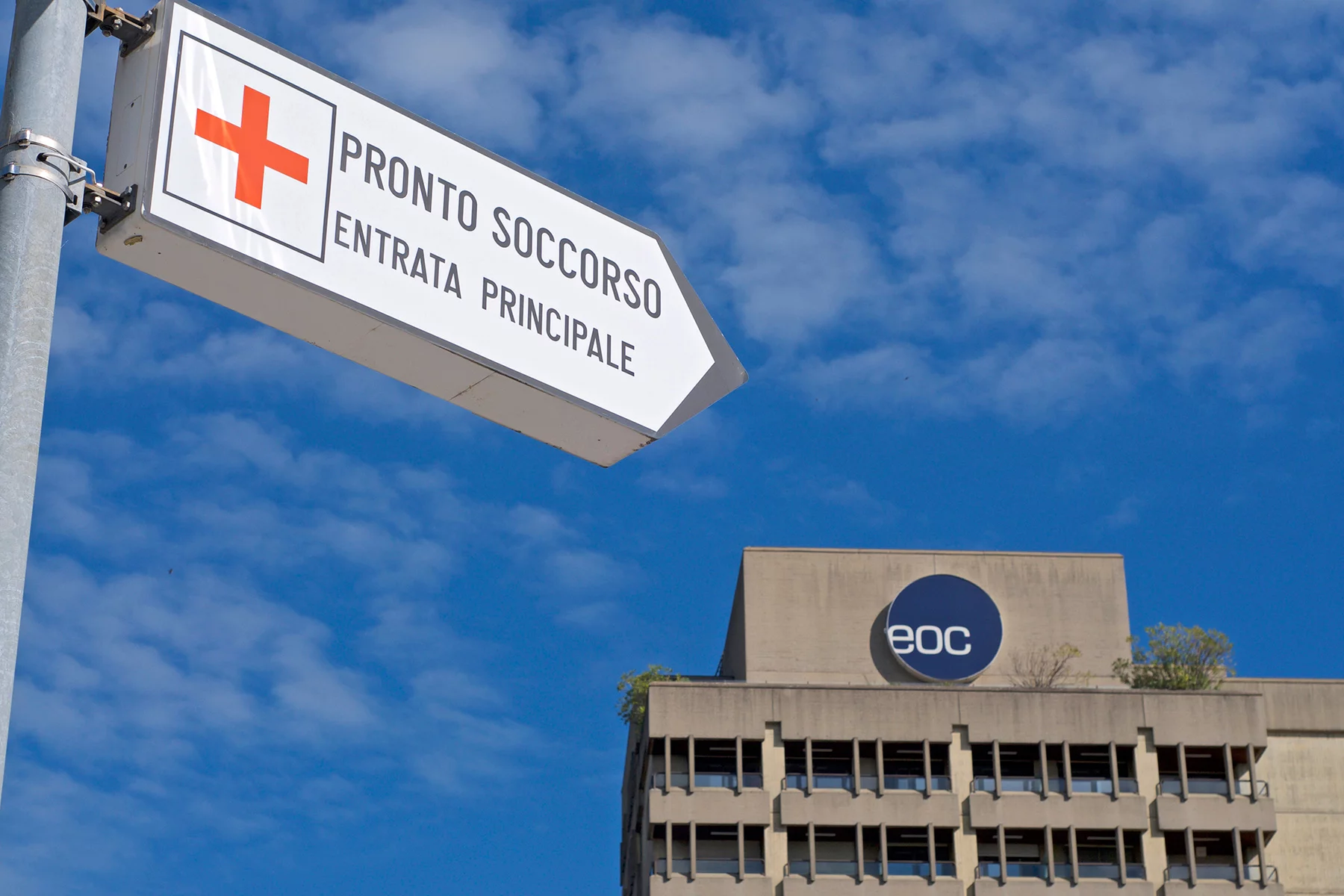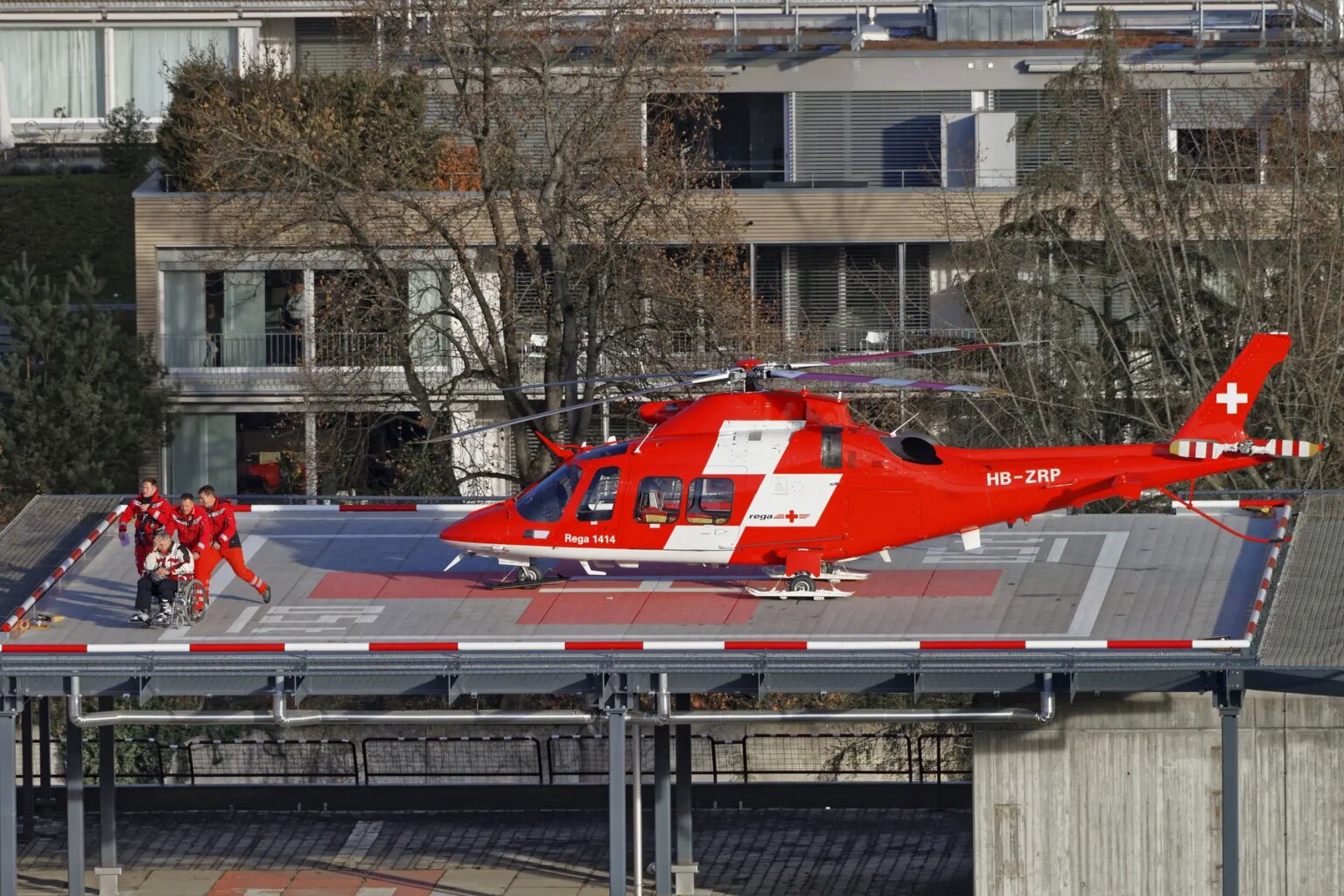Although the Swiss healthcare system is highly regarded, it is also an expensive system. Therefore, as an expat moving to the country, it is important to understand how hospitals work, how to access them, and the costs you might encounter along the way.
So to help you out, we cover the following topics below:
- Hospitals in Switzerland
- How to access hospital treatment in Switzerland
- Emergency treatment in Switzerland
- Hospital stays in Switzerland: what to expect
- Hospital costs in Switzerland
- Being discharged from Swiss hospitals
- Visiting someone in a hospital in Switzerland
- The best hospitals in Switzerland
- List of hospitals in Switzerland
- Useful resources
Cigna Global
Want access to the best private medical services in Switzerland? Speak to the healthcare professionals at Cigna Global today and find a policy that’s right for you. Take advantage of their global network of doctors, specialists, therapists and more with coverage tailor-made for you and your family. If you’re starting a new life in Switzerland, get peace of mind with Cigna Global.
Hospitals in Switzerland
You will find that hospitals in Switzerland have various names, depending on where you are in the multilingual country. But whether it is called a Krankenhaus, Spital, Hospital, or Ospedale, hospitals in the Alpine country are generally of a high standard. In fact, seven Swiss hospitals ranked in Newsweek’s list of The World’s Best Hospitals 2021.

Ordinarily, you would go to a hospital in your local canton, and this would usually be the one closest to your home. Additionally, if you are an English-speaking expat, you will be glad to know that most doctors in Switzerland (Doktoren/Ärzte/Médicins/Medici) and senior health professionals speak excellent English. However, just keep in mind that nurses and other staff may not be as fluent. Having said that, there will always be someone nearby who can translate for you.
Most Swiss hospitals are privately owned, however, some are public or run by a non-profit. The standard of care is extremely high across the board. Because private health insurance is mandatory in Switzerland, the country spends 11.3% of its GDP on healthcare costs.
Although hospitals in Switzerland are small, the ratio of hospitals to people is quite high. Indeed, as of 2020, there were 276 hospitals in the country with 37,611 beds and 174,593 full-time staff. Many of the bigger hospitals are general and cover a wide array of medical specialties. These can include gynecology and obstetrics, diabetes and endocrinology, cardiology, psychiatry, pediatrics, and neurology. However, some of the smaller ones are more specialized and focus on particular disciplines such as oncology.
How to access hospital treatment in Switzerland
In general, any Swiss resident can access treatment in a local hospital. However, it is important to note that unless it is an emergency, you will first need a referral from your general practitioner (GP). If you are a citizen of a European Union (EU) or European Economic Area (EEA) country and are staying in Switzerland for less than three months, you can use your European Health Insurance Card (EHIC) to access hospitals in the country.

Third-country expats from outside the EU/EEA, on the other hand, can show their Swiss health insurance card to access treatment. Either of these documents will grant you access to a range of hospitals, from those located in your canton to others within your insurance network.
If you are not a resident of Switzerland and are just visiting for a short period of time, it’s good to know that you can access emergency care at a hospital. This should be covered by your travel insurance. That said, you may incur some additional out-of-pocket costs, too.
Emergency treatment in Switzerland
Of course, for general medical issues, you will need to visit your GP who can offer you treatment or refer you to a specialist. However, if you need emergency treatment at a hospital in Switzerland, you can receive this by showing proof of your Swiss health insurance. That said, in the event of a serious medical emergency, you will receive immediate care even if you don’t have your insurance details on hand.

If you need urgent medical care in Switzerland, you should:
- Call the emergency number (144) from any phone in Switzerland to speak with the emergency services
- Visit your local hospital’s accident and emergency department (Notfalldienst in German, Urgences in French) or a specialist emergency clinic for more minor issues
- Find details of the nearest out-of-hours doctor, dentist, or pharmacy by calling 111 or 144; you can also call 022 748 4950 for an emergency doctor
- Note that each Swiss canton has an emergency pharmacy, and you can find further details about them online
Hospital stays in Switzerland: what to expect
If you are facing a hospital stay in Switzerland, there are some things you should be aware of. For starters, while the length and condition of your stay can vary, the level of care is almost always of high quality. Basic health insurance policies cover general wards, which usually accommodate two to four patients. However, if you have a more extensive insurance plan, you may qualify for semi-private rooms – which cater to two patients – or a fully private room.

Of course, top-level health insurance comes with added benefits such as being able to choose which hospitals and doctors you prefer. This also includes having better meals and facilities. You can read more about getting health insurance further down the guide.
Similar to other parts of the world, you will face some administrative tasks when staying in a hospital in Switzerland. For example, you will begin by signing paperwork at reception and having a consultation with your doctor. Medical staff will then usher you through whatever tests or surgery you require. However, unlike in other parts of the world, you won’t face long waiting times, since Swiss hospitals run like clockwork and won’t keep you waiting.
If you are having surgery, just keep in mind that you may stay in a monitoring room or intensive care for a while after the procedure. But when you are ready to be discharged, staff will help you through the process and help arrange your post-hospitalization care.
Hospital costs in Switzerland
While your mandatory health insurance policy should cover most of your admission costs, you may need to take care of some costs through co-pays and deductibles. This is most likely to occur if you choose a hospital outside your canton or insurance network. However, if you receive treatment in your local canton or have an emergency, then this won’t be the case.

Normally, your hospital will ask your insurance provider to pre-approve any treatments and surgeries. The hospital will then bill them directly and you will only need to take care of your portion of the costs. That said, you should note that the cost of living in Switzerland is notoriously high, and with that comes rising healthcare costs. In fact, basic hospital care could cost up to CHF 750 a day while acute care could cost as much as CHF 2,250 a day.
Health insurance in Switzerland
Hospitalization can be a scary thing to contemplate. However, just keep in mind that should you be admitted to a hospital, the costs could quickly escalate; even with health insurance coverage, which you must sign up for within three months of living in Switzerland. Indeed, your out-of-pocket payments are likely to amount to 26% of the overall healthcare costs, which is particularly high by European standards. Therefore, it is important to investigate your health insurance options to better protect you and your family’s health, and your peace of mind.
There are around 60 registered health insurance companies in Switzerland, which each offer the same benefits in their basic health insurance policies. You are free to choose your own insurer and can change company once a year if you give notice.
Some of the largest health insurance companies in Switzerland include:
Notably, healthcare premiums rose by an average of 2.4% every year over the last decade in Switzerland. However, the good news is this trend is being reversed slightly with a 2022 decrease announced by The Federal Council, which is trying to contain high costs. The Federal Council expects the average monthly premium to be around CHF 315,30. That said, there are scales for different groups of people. For instance, adults can expect to have a premium of CHF 373,80 and young adults CHF 263,80.
To get a more accurate idea of your healthcare premiums, including hospitalization, you can visit the government website Priminfo.
Being discharged from Swiss hospitals
Similar to other countries, there will be several formalities to deal with when you are ready to be discharged from a hospital in Switzerland. Of course, you will need to settle the bill and make sure that your insurance will cover the rest of the costs. You will also need to fill out the discharge forms, set any necessary follow-up appointments, and receive any medication you require. Usually, your hospital doctor will send a medical report directly to your GP, who will oversee your further care.

You will likely leave with the following:
- A discharge notice
- A doctor’s note for medical leave
- Prescriptions
- Treatment notes
- Any films and images (e.g., x-rays, MRIs)
Although it is not advisable, it is possible to discharge yourself from a Swiss hospital at any time. However, if you choose to do so against medical advice, you will need to sign a form that releases the hospital from any liability.
Visiting someone in a hospital in Switzerland
Swiss hospitals usually allow family members and friends to visit patients during set times. Generally, hospitals grant visiting hours from between 09:00 and 18:00 and will need to know in advance that you are going to be coming in. As a medical precaution, patients who are scheduled for surgery or have come out of surgery are usually not allowed to have visitors in the hours before and after their procedure. Moreover, if the patient has a contagious condition, then the hospital will usually isolate them and not allow visitors.

Of course, due to the Covid-19 pandemic, many hospitals in Switzerland have amended their visiting policies. Therefore, it is best to check with your specific hospital about their current rules.
The best hospitals in Switzerland
With so many great examples, it would be hard to choose the best hospitals in Switzerland. However, according to Newsweek‘s list of The World’s Best Hospitals 2021, these are the top five institutions in the country.
Lausanne University Hospital (Centre Hospitalier Universitaire Vaudois)
This hospital is one of five in Lausanne that is linked to the faculties of Biology and Medicine at the University of Lausanne. It is a general hospital but offers specialties including obstetrics, acute care, oncology, psychiatry, and radiology. In 2014, the hospital was approved by the World Health Organization (WHO) to conduct a vaccine trial for the Ebola virus.
University Hospital Zurich (Universitätsspital Zürich)
This is the first hospital in Zurich and has been in existence, in some form, since 1204. It covers all medical specialties through specialist centers such as the Heart Center, the Comprehensive Cancer Center, and the Clinical Trials Center. Nobel Prize winner Rolf M Zingkernagel conducted his award-winning research here. Zingkernagel and a colleague also won the Nobel Prize for “proving how the immune system recognizes virus-ridden cells”.
University Hospital Basel (Universitätsspital Basel)
In operation since 1842, this Basel hospital offers elegant surroundings in a former palace. The interdisciplinary hospital encompasses 50 clinics, units, and institutions and is affiliated with the University of Basel. It is also famous because Apple co-founder Steve Jobs came here in 2009; when he sought the hospital’s specialist form of hormone-delivered radiotherapy that is used to treat neuroendocrine cancer.
University Hospitals Group Geneva (Les Hôpitaux Universitaires de Genève – HUG)
Located in the Cluse-Roseraie district of Geneva, this is the main hospital in the University of Geneva’s hospital network – and its largest. Across its six buildings, the hospital offers short-term treatments, emergency and intensive care services, operating theaters, and research facilities.
Klinik Hirslanden, Zürich
Originally founded in 1932, this hospital is now the centerpiece of the Hirslanden Group, which is the largest private hospital network in Switzerland. One of the most exclusive hospitals in Switzerland, the Klinik offers specialist clinics with highly-qualified experts delivering custom treatments. It is also renowned for its high medical and nursing care and comfortable accommodation.
List of hospitals in Switzerland
You can find a full list of hospitals in Switzerland on the Swiss Conference of Cantonal Health Directors (GDK/CDS) website or visit the association of Swiss Leading Hospitals (SLH). However, below we list the hospitals in the major areas of Switzerland:
Aargau
Basel
- Basel University Hospital
- Kantonsspital Baselland (Standort Laufen)
- Bethesda Spital
- Kantonsspital Baselland (Standort Liestal)
- St Claraspital AG
- Universitäts-Kinderspital beider Basel
Bern
Fribourg
- Hôpital Daler Fribourg
- Hôpital HFR Fribourg
- Hôpitaux Universitaires de Genève
- HUG – Hôpital des Enfants
Graubünden
Lausanne
Lucerne
Neuchâtel
Schaffhausen
Solothurn
St Gallen
Thurgau
Ticino
Zug
Zurich
Useful resources
- The Federal Office of Public Health – provides the big picture on healthcare in Switzerland
- Swiss Leading Hospitals – offers a list of leading private hospitals and clinics
- Swiss Conference of Cantonal Health Directors – provides the latest on healthcare in your canton






